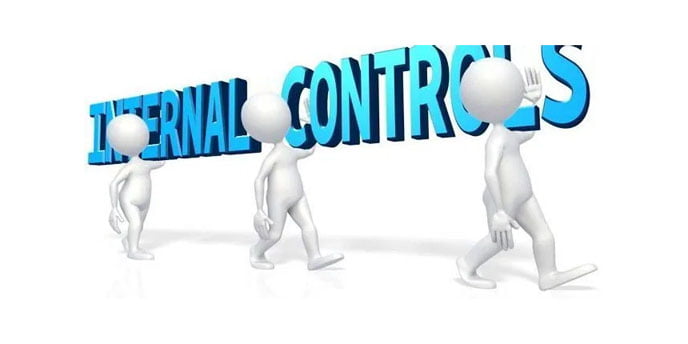Control involves certain checks and procedures to prevent the frauds or misappropriation of business assets. Earlier the internal control was seen as mere accounting guidelines but the scenario has gradually changed and the concept of internal control now indicates the whole system of controls, financial or otherwise, established by the management in the conduct of a business, including internal check, internal audit and other forms of control.
The Information Systems Control and Audit Association(ISACA) has defined the Internal Control Systems as, ‘The policies and procedures, practices and organizational structures, designed to provide reasonable assurance that business objectives will be achieved and that undesired events will be prevented or detected and corrected’.
Balance enquiry is one of the basic transactions that account holders carry out for different reasons. BOB Balance Enquiry allows its customer to check their account balance Online
According to, The Institute of Chartered Accounts of England and Wales, the internal control is meant not only internal check and internal audit but the whole system of controls, financial and otherwise, established by the management in order to carry on the business of the company in an orderly manner, safeguarding its assets and secure as far as possible the accuracy and reliability of its records.
Components of Internal Control:
When we talk about Internal Control, two key phrases comes to our mind i.e. (i) internal check and (ii) internal audit. Let us have a brief synopsis about the internal check and internal audit.
(i) Internal Check: Internal check means an arrangement that a transaction is a process by two or more persons and each one is independent and starts with when the predecessor has completed the task. So, it is a self-balancing system, which has the in-built systems of independent checking of the work done by others.
All these ca inter question paper help Candidates to sail through IPCC and CA Intermediate Nov 2019 examination
(ii) Internal Audit: The second important aspect is the internal audit. Internal audits may be done by the own staff or by engaging any professional person outside of the organisation. The scope of the internal audit is determined by the management. Internal Auditor is required to submit its report to the management (who is appointing authority). The report should inter alia cover the points relating to the adequacy of the internal check and control systems, adherence to the established management controls, maintenance of the records and reports on the financial accounting, etc. The internal audit should be carried out of all the Departments of the organisations and before start of the audit, the auditor should well understand the plans, policies, and procedures of the Dept/Firm in order to find the job specifications, its descriptions, and accountability.
What Internal Control CAN DO and what CANNOT DO:
What Internal Control Can Do:
• Internal control can help an entity achieve its performance and profitability targets, and prevent loss of resources.
• It can help ensure reliable financial reporting.
• It can help ensure that the enterprise complies with laws and regulations, avoiding damage to its reputation and other consequences.
• In sum, it can help an entity get to where it wants to go, and avoid pitfalls and surprises along the way.
What Internal Control Cannot Do:
• Internal control cannot change an inherently poor manager into a good one.
• Internal control cannot ensure success, or even survival in case of shifts in government policy or programs, competitors’ actions or economic conditions since these are beyond the management’s control.
• An internal control system, no matter how well-conceived and operated, can provide only reasonable–not absolute– an assurance to management and the board regarding the achievement of an entity’s objectives.
• The likelihood of achievement is affected by limitations inherent in all internal control systems.
• Controls can be circumvented by the collision of two or more people, and management has the ability to override the system.
• Another limiting factor is that the design of an internal control system must reflect the fact that there are resource constraints, and the benefits of controls must be considered relative to their costs.
• Thus, while internal control can help an entity achieve its objectives, it is not a panacea.






